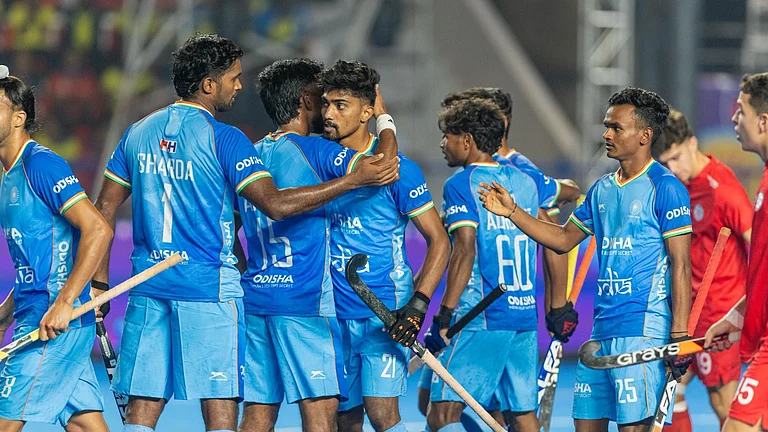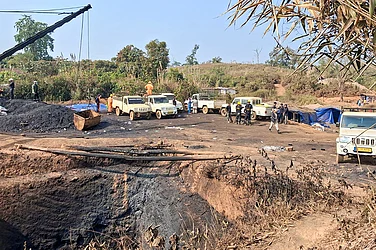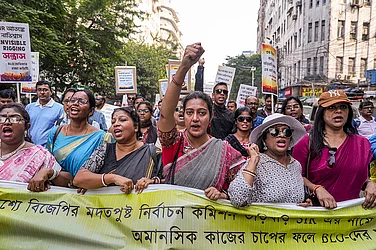On August 5, 2022, a Supreme Court bench consisting of Justices D.Y. Chandrachud and J.B. Pardiwala permitted a 25-year-old unmarried woman to medically terminate her 24-week-old pregnancy resulting from a consensual relationship. Justice Chandrachud noted the legal framework that restricts unmarried women (vis-à-vis married women) from medically terminating their pregnancies, and stated that both married and unmarried women suffer the same mental anguish with respect to a pregnancy that is older than the gestational period of 20 weeks. In granting her permission to abort, the court recognised the need to “move ahead” from restrictive legal provisions that preclude unmarried women from obtaining abortions after 20 weeks of gestation.
Legal abortion allows pregnant persons to exercise their decisional autonomy. This is under attack globally. The June 24, 2022, decision of the US Supreme Court in the case of Dobbs v. Jackson Women’s Health Organization, overturned 1973’s Roe v. Wade, which guaranteed abortion as a protected right. The court held that the US Constitution does not confer a right to abortion and that the people and their elected representatives (i.e., the legislature) should have the authority to regulate abortions. The court’s finding that the right to abortion is not entrenched in one’s right to autonomy, flies in the face of reproductive rights. Meanwhile, Indian courts have frequently intervened to protect reproductive rights. For instance, the Supreme Court in Puttaswamy vs. Union of India (2017), held that access to reproductive rights is recognised as being part of personal liberty, under Article 21 of the Indian Constitution.
Over the decades, Indian activists have pointed out that the 1971 Medical Termination of Pregnancy Act (MTP Act) is a doctor-centric law, which grants discretion to medical professionals in allowing or denying abortions, without paying regard to pregnant persons. Recent legal reform in this sphere has only reinforced the doctor-centric framework around abortion.
The recent legal reform occurred during the pandemic, between March 2020 and March 2021, when the Ministry of Health and Family Welfare introduced amendments to the MTP Act. The new law made significant yet inadequate changes to the MTP Act, allowing termination of pregnancy for all women, regardless of marital status. The maximum gestational period for abortions was raised from 20 to 24 weeks for certain categories of pregnant women as provided in the MTP Rules, including survivors of rape, incest, minors, women who experience change of marital status during their pregnancy (widowhood or divorce), women with disabilities and those in emergency, disaster or humanitarian crises. Consistent with the erstwhile MTP Act, pregnant persons would have to obtain permission from one registered medical practitioner to obtain abortions for up to 20 weeks’ gestation, and two medical practitioners between 20 and 24 weeks, if they are from the above categories of people. The new law mandates medical boards in every state and Union Territory to diagnose foetal ‘abnormalities’ necessitating termination of pregnancy. Although medical termination of pregnancy is typically permitted up to 24 weeks, the amended law removed the upper gestation limit for ‘foetal abnormalities’. This amended provision, which also requires medical boards (to be set up in every state and UT) to permit the termination, is framed from a eugenics perspective that deems persons with disabilities as undesirable.
Also, the more the legislation uses the term “woman”, the more it excludes access to abortion for persons other than cis-gender women. This exclusionary language restricts abortion access to trans-men and gender-variant persons. In spite of the Supreme Court’s recognition of the right to self-determination in 2014, and the anti-discrimination legislation in 2019, trans- and gender-variant persons still face challenges accessing medical care in public and private healthcare settings.
More broadly, legal reforms without adequate social structures to provide pregnant persons with the capacity to access abortion are inadequate. Recent legal reforms fail to make abortion available ‘at will’ without the criminalisation framework. The unavailability of medical abortion pills in several states, coupled with the requirement of third-party authorisation for abortions, and shortages in medical professionals—especially in remote areas—results in pregnant persons finding it virtually impossible to access safe abortions. Further, a 2019 study, titled Unsafe Abortion and Abortion-related Death Among 1.8 Million Women in India, showed that Muslims and Christians were associated with increased odds of unsafe abortion, compared with Hindus. Dalit, Adivasi and women in rural settings were also 26 per cent more likely to resort to unsafe abortions. Bureaucracy and poverty create disproportionate barriers to accessing safe abortions, particularly for rural Dalit and Adivasi women, similar to the experiences of Black, indigenous and people of colour in USA.
The discourse around abortion for marginalised groups in India needs to transcend the choice and individualistic framework, which does not afford reproductive choice to all pregnant persons, but only to those who can afford them or are deemed “legitimate choice makers”. While the law allows for legal access to abortion, access to safe abortion continues to be a challenge. Further, the MTP Act merely lays out exceptions to the criminalising provisions of the Indian Penal Code (IPC). The person undertaking the abortion, as well as the medical practitioner facilitating it, are liable to be prosecuted if conditions under the MTP Act are not met.
Therefore, while socio-economic and medical structural barriers continue to pose challenges, criminalisation of abortion through a restrictive legal framework creates a chilling effect on the willingness of medical practitioners to perform even routine and legal abortions, eliminating access to safe abortions. Such criminalisation forces pregnant persons to access back-alley illegal abortions, which are undertaken without any monitoring or accountability, as well as with lower (or no) standards of medical care. Further, continued criminalisation of abortion also perpetuates and sustains social stigma around the procedure, which then plays a definitive role in pregnant persons’ decisions on whether to opt for legal or illegal abortions and whether to disclose that they are having abortions.
The criminalisation of abortion also has disproportionate effects on the reproductive autonomy of Dalit, Bahujan and Adivasi people, who already experience reduced access to healthcare services on account of poor reach of public healthcare, as well as inherent caste discrimination in existing facilities. According to Harvard University fellow Suraj Yengde, Dalit, Bahujan and Adivasi people face ‘triple discrimination’ based on their caste, gender and socio-economic status. In their 2018 paper on Scheduled Caste women in Bihar, Parisa Patel, Mahua Das and Utpal Das have highlighted how caste is a definitive factor in maternal health outcomes generally, and access to legal abortions, specifically. In light of amendments to the MTP Act that reflect a eugenics rationale, it is particularly important to consider the apprehensions that Dalit, Adivasi, trans people, or people with disabilities might have when advocating for access to safe abortion. Historically, marginalised groups have not been able to make legitimate choices. Thus, it is essential to focus on access on the ground to navigate structural barriers.
There must be an emphasis on centring the autonomy of pregnant persons in any abortion-related policy/law, ensuring that such a policy is inclusive of, for example, transgender and gender-diverse persons, rather than only considering cis women as legitimate recipients of abortions. Further, the challenges and experiences of pregnant persons located at different caste and socioeconomic locations that translate into tangible health outcomes show that reproductive justice is a social justice issue.
Therefore, the reproductive rights of the marginalised individuals and groups in India can only be ensured by adopting a comprehensive reproductive justice lens, recognising the adverse impacts of caste, class, indigeneity, ability gender and sexual identity challenges. Social, economic, and political factors of the marginalised individuals and groups must be considered while advocating for reproductive and gender justice, to ensure an intersectional approach. The grave implications of criminalising abortions on the reproductive rights of pregnant persons call for entirely decriminalising abortion services—replacing the current system with an anti-caste, anti-carceral gender justice framework that allows for abortion at the will of all pregnant persons.
(This appeared in the print edition as "Reproductive Justice is a Social Justice Issue")
(Views expressed are personal)
Dipika Jain is professor of Law & Vice Dean (Research; Clinical Legal Education) & Director, Centre for Justice, Law and Society at Jindal Global Law School





















